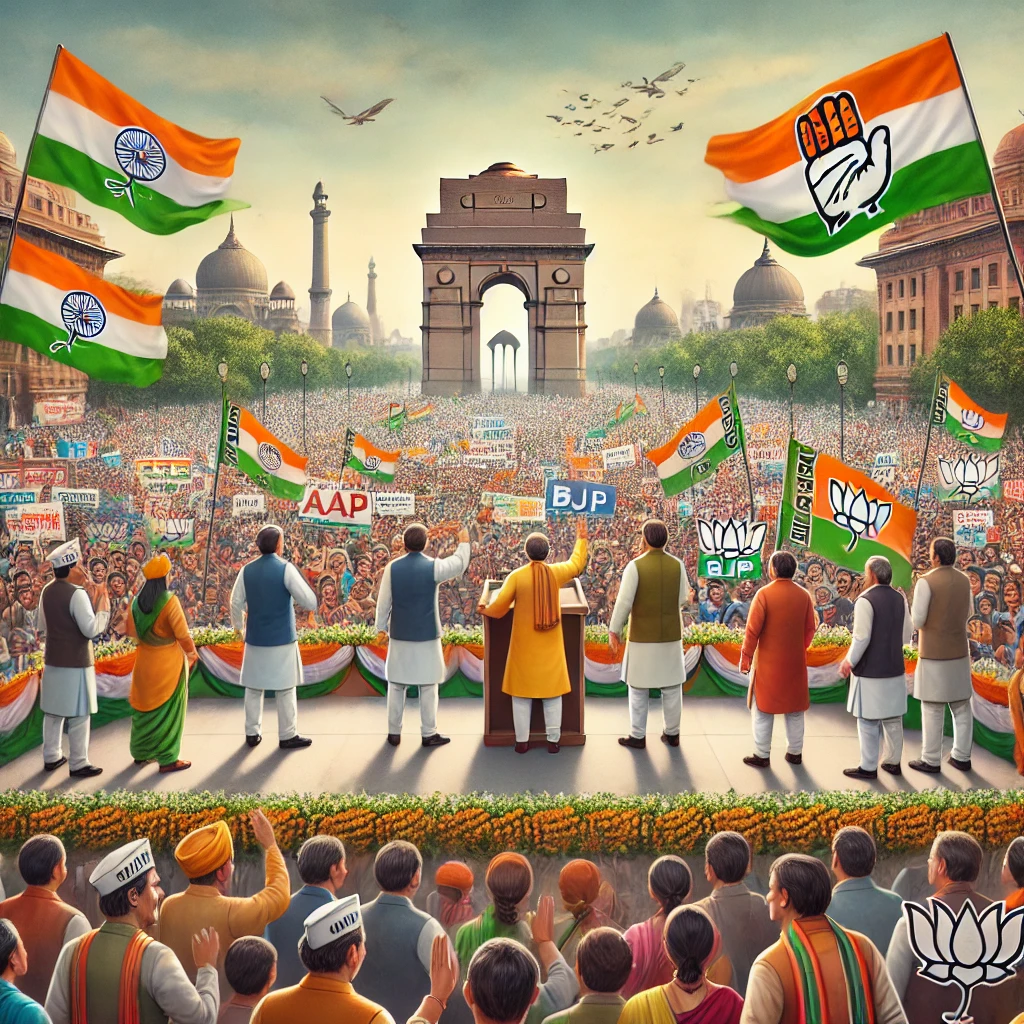
As the Delhi Assembly Elections 2025 draw closer, the political battlefield in the capital is witnessing an intensifying war of words between Prime Minister Narendra Modi and Chief Minister Arvind Kejriwal. Both leaders are pulling out all stops to sway public opinion, highlighting the critical importance of this election for both the Aam Aadmi Party (AAP) and the Bharatiya Janata Party (BJP).
This contest is shaping up to be not just a battle of policies but also a clash of ideologies, as Modi and Kejriwal engage in sharp verbal exchanges that underscore their divergent visions for Delhi’s future.
Modi’s Allegations of Corruption
During a recent rally in Delhi, PM Modi took a direct aim at AAP, accusing the party of fostering a culture of corruption over its decade-long tenure. He claimed that mismanagement and misappropriation of public funds have stalled Delhi’s development, and AAP’s governance has failed to deliver transparency and accountability.
“Delhi deserves better,” Modi said. “The people of this great city need a government that is honest, hardworking, and truly focused on progress. Corruption has no place in our vision for Delhi’s future.”
Modi highlighted BJP’s agenda of building a corruption-free and development-oriented governance model, promising large-scale reforms in infrastructure, healthcare, and public transport if BJP is voted to power.
Kejriwal Hits Back
Not one to back down, Arvind Kejriwal launched a scathing counterattack. Addressing a gathering of supporters, Kejriwal accused the BJP of threatening Delhi’s welfare-oriented governance model, which he claims has transformed the lives of millions.
“They want to take away free education, healthcare, and electricity,” Kejriwal alleged. “BJP’s manifesto is an attack on the common man. If they come to power, the progress we’ve made in the last decade will be undone.”
Kejriwal emphasized the success of AAP’s initiatives, including free water and electricity, improved public schools, and the Mohalla Clinics healthcare program. He urged voters to protect these schemes by re-electing his government.
The Key Issues at Play
The ongoing debate between Modi and Kejriwal highlights the stark differences in their parties’ approaches:
- BJP’s Focus: Infrastructure development, anti-corruption measures, and economic growth.
- AAP’s Agenda: Welfare schemes, free utilities, public healthcare, and education.
These differences have polarized the electorate, with both leaders addressing the pressing issues of Delhi in their own way.
Purvanchali Vote: A Decisive Factor
One critical factor in this election is the Purvanchali vote. Representing a significant chunk of the population, Purvanchalis hold the key to nearly 27 assembly seats. Both BJP and AAP have intensified their outreach efforts, with dedicated teams and campaign strategies targeting this influential community.
The BJP has roped in leaders from Bihar and Uttar Pradesh to appeal to Purvanchalis, while AAP has focused on highlighting its achievements that directly benefit this demographic.
What’s at Stake in 2025?
The Delhi Assembly Elections 2025 are more than just a contest for power—they represent a choice between two starkly different visions for the future of Delhi. While BJP aims to present itself as a party of change and reform, AAP is counting on its track record and the trust it has built among the people.
With less than two weeks to go, the campaign trail is expected to intensify further, making this one of the most closely watched elections in Delhi’s history.





